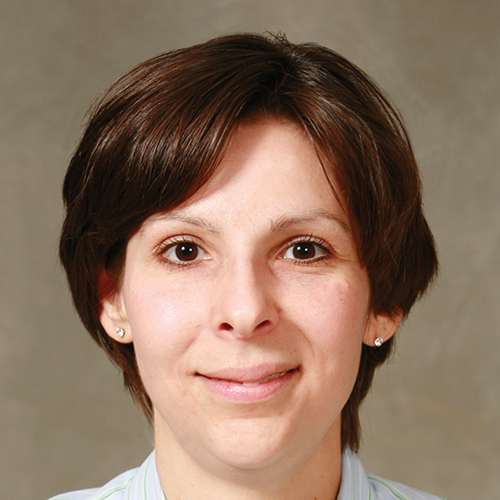Kraft ‚Äėhas changed our understanding of lipid organization‚Äô
, assistant professor of chemical and biomolecular engineering at the University of Illinois Urbana-Champaign, is the winner of this year’s 91”įŅ‚ and Molecular Biology Walter A. Shaw Young Investigator in Lipid Research award.

"I’m honored to receive the Walter A. Shaw Young Investigator Award in Lipid Research for my lab’s work on lipid organization in the plasma membrane. I’m especially grateful to my students, collaborators, colleagues, the 91”įŅ‚and Walter A. Shaw for making this possible."
—MARY KRAFT
Established by the ASBMB’s Lipid Research Division and named after the founder of Avanti Polar Lipids, the award recognizes outstanding research contributions by investigators with 10 or fewer years of experience.
Kraft’s colleague at UIUC, , said that Kraft’s work “has changed our understanding of lipid organization within the cellular plasma membrane and the mechanisms that produce it.”
Kraft devised a novel method for imaging using high-resolution secondary ion mass spectrometry in conjunction with metabolic isotope labeling, which opened an unexpected new view of lipid composition in the cellular plasma membrane. One key finding demonstrated that cholesterol is not enriched in sphingolipid domains but rather evenly distributed throughout the cell membrane.
Kraft is continuing her excellent efforts, said at the University of Wisconsin-Madison, who supported Kraft’s nomination for the award: “I cannot think of anyone who is better suited to this award, aimed as it is at young researchers who have not only attained prominence but also hold considerable promise for future work.”
Kraft started her career as a cooperative education student at the Nalco Chemical Company and completed her graduate work at UIUC. She took a four-year hiatus from the Midwest to do her postdoctoral fellowship at Stanford University, where she was willing to try what many other researchers could not achieve.
Her postdoctoral adviser, , explained: “Everything she was doing was new. There is little precedent for the application of the method to any soft material, let alone biological membranes, and the consensus was that it would be impossible to pull off.” Kraft overcame those obstacles and established the high-resolution SIMS technique for lipid membranes. Kraft soon returned to UIUC for an assistant professor position.
Kraft not only has excelled in the laboratory but also in the classroom and in advising, receiving multiple awards from her institution for her attentiveness to student needs.
She will receive her award at the in San Diego, where she will give a presentation. The presentation will take place at 3:45 p.m. Sunday, April 27, in Room 6C of the San Diego Convention Center.
Enjoy reading 91”įŅ‚Today?
Become a member to receive the print edition four times a year and the digital edition monthly.
Learn moreGet the latest from 91”įŅ‚Today
Enter your email address, and we’ll send you a weekly email with recent articles, interviews and more.
Latest in People
People highlights or most popular articles

Fliesler wins scientific and ethical awards
He is being honored by the University at Buffalo and the American Oil Chemists' Society for his scientific achievements and ethical integrity.

Hope for a cure hangs on research
Amid drastic proposed cuts to biomedical research, rare disease families like Hailey Adkisson‚Äôs fight for survival and hope. Without funding, science can‚Äôt ‚Äúcatch up‚ÄĚ to help the patients who need it most.

Before we’ve lost what we can’t rebuild: Hope for prion disease
Sonia Vallabh and Eric Minikel, a husband-and-wife team racing to cure prion disease, helped develop ION717, an antisense oligonucleotide treatment now in clinical trials. Their mission is personal ‚ÄĒ and just getting started.

91”įŅ‚members recognized as Allen investigators
Ileana Cristea, Sarah Cohen, Itay Budin and Christopher Obara are among 14 researchers selected as Allen Distinguished Investigators by the Paul G. Allen Family Foundation.

AI can be an asset, 91”įŅ‚educators say
Pedagogy experts share how they use artificial intelligence to save time, increase accessibility and prepare students for a changing world.

91”įŅ‚undergraduate education programs foster tomorrow‚Äôs scientific minds
Learn how the society empowers educators and the next generation of scientists through community as well as accreditation and professional development programs that support evidence-based teaching and inclusive pedagogy.

